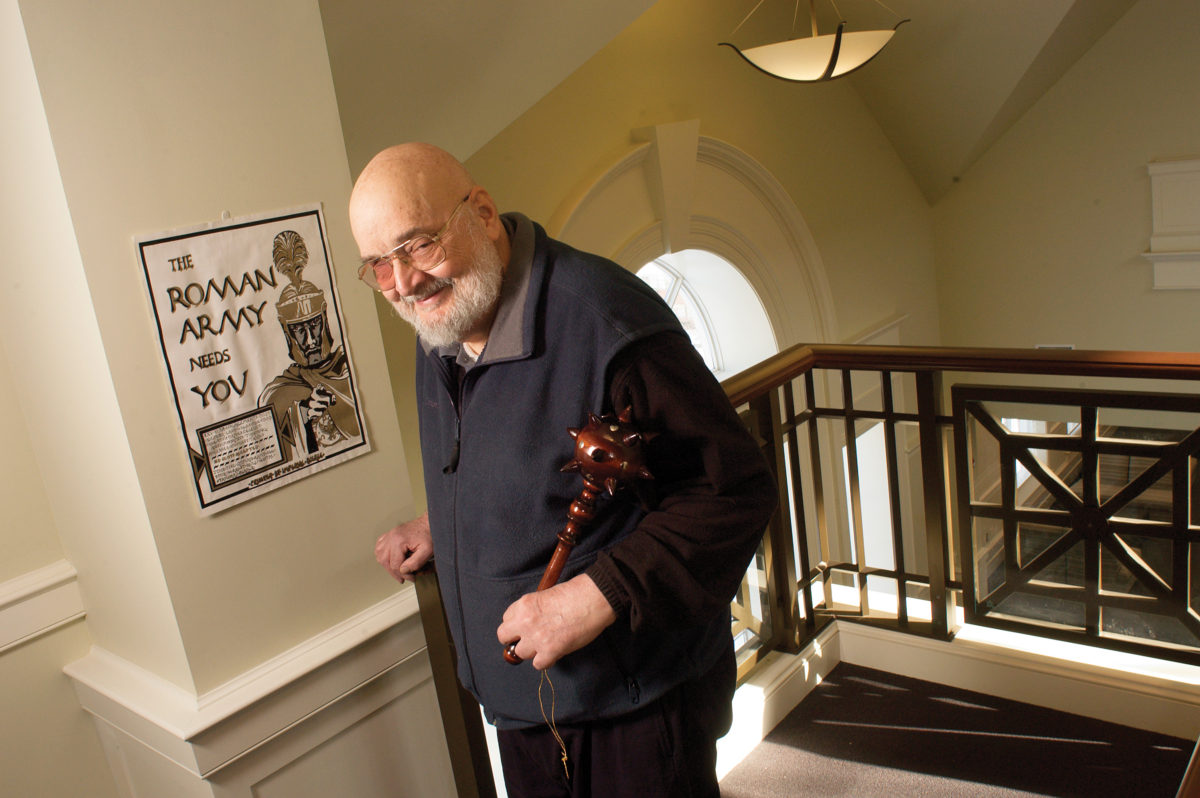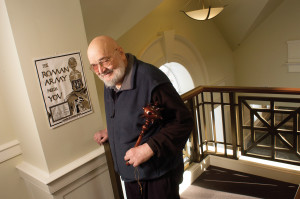John P. Karras, professor of history, 1932–2016
WHEN I ARRIVED at the college as a rookie teacher in 1975, John Karras was chair of the History Department. He was a formidable presence — tall, bald, and heavy-set, loud and opinionated, full of humor, a born raconteur. The son of Greek immigrants, he blazed his own trail and disdained conventional gentility. He did […]

 WHEN I ARRIVED at the college as a rookie teacher in 1975, John Karras was chair of the History Department. He was a formidable presence — tall, bald, and heavy-set, loud and opinionated, full of humor, a born raconteur. The son of Greek immigrants, he blazed his own trail and disdained conventional gentility. He did not defer to anyone.
WHEN I ARRIVED at the college as a rookie teacher in 1975, John Karras was chair of the History Department. He was a formidable presence — tall, bald, and heavy-set, loud and opinionated, full of humor, a born raconteur. The son of Greek immigrants, he blazed his own trail and disdained conventional gentility. He did not defer to anyone.
A specialist on the ancient Mediterranean and the Byzantine Empire, Karras viewed history through a wide-angle lens. He prodded colleagues to become world historians who could think comparatively about civilizations and study global interactions over time. He and his wife, Ann, traveled to distant corners of Eurasia in the summertime, and he expertly narrated slide shows when they returned.
Those who worked with Karras had an esprit de corps and knew they were part of his team. The department’s windowless suite in the bowels of Forcina Hall hosted endless reminiscences, tall tales, and general hilarity, with Karras dependably in the center of the scrum.
Above all, Karras had an impact on his students.
“I took two semesters of Greek history with the hardest teacher at the college,” says Rose Mary Sheldon ’69, now a historian at Virginia Military Institute. “He put us over the hurdles; we thought nothing was ever good enough for him. But he was fair and very, very funny. He taught me everything I know about excellence in teaching.”
“It changed my life,” says Meghan DiLuzio,’04, who enrolled in Karras’ Roman Empire course her freshman year and now teaches classics at Baylor University. Her husband, Joseph DiLuzio ’00, also a Baylor classicist, paid Karras the same tribute that Pericles gave to fallen Athenians, “graven not on stone but in the hearts of men.”
Just after I heard the news of John’s death, a handsome hawk slammed into a window near where I sat. Momentarily stunned, the bird stared at me with haughty disbelief, then flew up to a high branch before soaring away. And so, John’s spirit took wing.
—Daniel Crofts, professor emeritus
Posted on December 21, 2016

